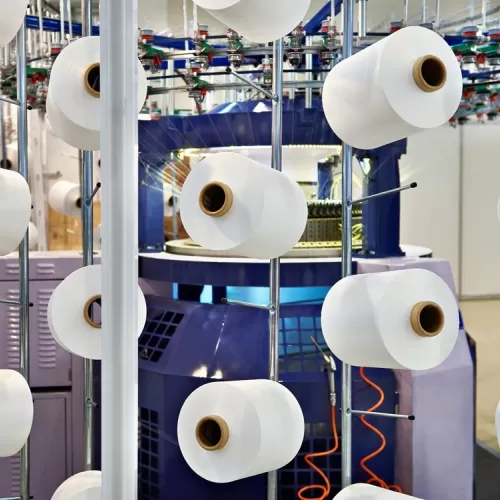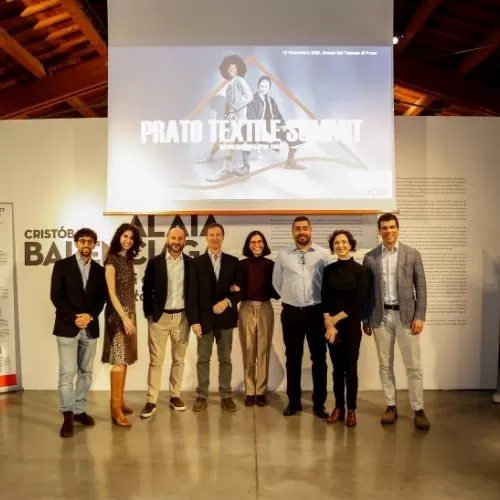03 Sep 2024
Smart materials: towards a sustainable future in fashion?
The dawn of a new era in fashion: smart clothing
Today's sustainable fashion is driven by ethics, style and innovation. Among the latest innovations are smart materials, a category of fabrics and yarns that go beyond traditional apparel functions to offer new possibilities in comfort, safety, health and well-being. These materials form the basis of smart apparel, garments that integrate advanced technologies to improve the wearer's quality of life. Because of their extraordinary capabilities, these fabrics could change the way we dress. But despite their potential, smart materials can also pose challenges in terms of environmental impact.
What are smart materials?
Smart materials are textiles and yarns with advanced properties thanks to the integration of technologies such as sensors, microchips and nanomaterials. These materials are able to sense and respond to external stimuli such as temperature, humidity, pressure or movement, adapting to the needs of the wearer.
The characteristics of smart materials vary depending on the technologies used, but some of the most common include:
- Thermoregulation: the ability to regulate body temperature to maintain comfort in different climatic conditions.
- Breathability: the ability to promote sweat transport, keeping the skin dry.
- Waterproofing: the ability to resist water and moisture.
- Bacteriostatic: the ability to inhibit the growth of bacteria and prevent odor.
- Electrical conductivity: the ability to conduct electricity, paving the way for new functionalities such as interaction with electronic devices.
The potential of smart materials in fashion is huge. They can improve athletic performance, everyday comfort and overall well-being, paving the way for a new generation of functional and personalized clothing. However, smart materials can also pose challenges in terms of environmental impact.
Are smart textiles sustainable?
Although smart textiles are often associated with the concept of sustainability because of their ability to improve quality of life, it is critical to consider the entire life cycle of the product to assess its true environmental impact.
As with any other product, the sustainability of smart textiles depends on several factors:
- Material origin: the environmental and social impact of the materials used in the production of smart textiles is a critical element. The use of recycled, biodegradable or renewable fibers can help reduce the environmental footprint of the product.
- Production process: the production techniques used can have a significant impact on the sustainability of the smart textile. It is important to use low-impact processes that minimize water and energy consumption and reduce pollutant emissions.
- Use and durability: the durability of the product and its energy efficiency during use are key factors for sustainability. A durable, energy-efficient smart fabric will have a lower environmental impact than a product with a short lifespan or high energy consumption.
- Disposal and recycling: the presence of electronic components such as sensors and batteries can pose challenges for the disposal and recycling of smart textiles. It is crucial to design these products in a way that facilitates the removal and proper disposal of non-recyclable elements, promoting a circular economy approach.
Thus, the sustainability of smart textiles is not a given, but depends on a series of conscious decisions throughout the product lifecycle. It is important to carefully assess the environmental impact of each step, from material selection to design, from production to use and disposal, to ensure that these innovative fabrics truly contribute to a more sustainable future for fashion and the planet.
Sustainable materials development and research with Fulgar
Although smart materials represent a significant evolution in the textile industry, sustainability remains a key priority. Fulgar is committed to the production of polyamide 6.6 yarns, offering increasingly sustainable solutions for the fashion and general textile industries. Our commitment to innovation and sustainability can help your company integrate high quality fabrics into your collections and contribute to a greener future for fashion.
Visit our website to learn more about our sustainable yarns and contact us to explore how we can work together to make your production greener.





